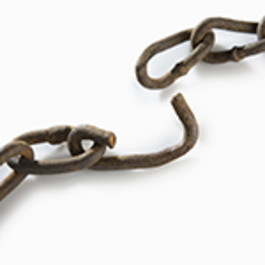Can We Talk?

 Look—I know how uncomfortable it can be, talking about our own weaknesses. But sometimes, in the life of a family or in this case an institutional family, we need to have that collective conversation. And so when the university contacted us about joining with them in a springtime focus on substance abuse, it made sense for the campus church to do just that. After all the Student Movement, our campus newspaper, has just run three major articles dealing with substance abuse. And speaking of being uncomfortable talking about our own weaknesses, I applaud Kimberly Schwirzer for being vulnerable and sharing with editor Melodie Roschman the testimony of her own battle with addiction. “‘Just because it’s an Adventist school, doesn’t mean we can pretend that people don’t drink, don’t experiment with drugs, don’t get into trouble,’” Kimberly told the Student Movement. “‘I went to Andrews to get away from party culture,’ she explains, but what she got was ‘loss of control, and addiction’” (Student Movement 2-26-14 p 3). And she isn’t alone. Not at Andrews University. Not at Andrews Academy. Not at any high school or university in this nation, Seventh-day Adventist or otherwise. There are some who wish we could simply pretend that the grab-bag of addictions prolific in our secular culture (alcohol, drugs, sex, food, et al) doesn’t exist in our faith community—but whom are we fooling, except ourselves? To deny we have a problem only exacerbates the problem and delays any solution. Which isn’t to suggest that a springtime series of sermons—“The Bondage Breaker: How to Win (and Help Your Friends Win) the Battle of Addiction”—is the elixir to heal our addictions. The truth is, only Jesus can free the captive: “‘The Spirit of the Lord is upon me, because He has anointed me . . . to let the oppressed go free’” (Luke 4:18 NRSV). Which means: “‘If the Son sets you free, you will be free indeed’” (John 8:36 NIV). But is Jesus too simplistic a solution to our addictions? I don’t think so. Not if the dark world of addictive behavior is the manifestation of an even darker and more desperate war, fought not only within us, but raging invisibly around us. “For our struggle is not against flesh and blood, but against the rulers, against the authorities, against the powers of this dark world and against the spiritual forces of evil in the heavenly realms” (Ephesians 6:12 NIV). Plain and simple, we need the Bondage Breaker. And in tandem with Him some practical, repeatable actions we can take to personally experience His promised deliverance from our addiction. So take the journey with me—do it for your friends, do it for yourself. And be assured that Pioneer will be a safe, welcoming place for you, no matter your addiction or struggle. Because we’re all in this together. With the One who has already won.
Look—I know how uncomfortable it can be, talking about our own weaknesses. But sometimes, in the life of a family or in this case an institutional family, we need to have that collective conversation. And so when the university contacted us about joining with them in a springtime focus on substance abuse, it made sense for the campus church to do just that. After all the Student Movement, our campus newspaper, has just run three major articles dealing with substance abuse. And speaking of being uncomfortable talking about our own weaknesses, I applaud Kimberly Schwirzer for being vulnerable and sharing with editor Melodie Roschman the testimony of her own battle with addiction. “‘Just because it’s an Adventist school, doesn’t mean we can pretend that people don’t drink, don’t experiment with drugs, don’t get into trouble,’” Kimberly told the Student Movement. “‘I went to Andrews to get away from party culture,’ she explains, but what she got was ‘loss of control, and addiction’” (Student Movement 2-26-14 p 3). And she isn’t alone. Not at Andrews University. Not at Andrews Academy. Not at any high school or university in this nation, Seventh-day Adventist or otherwise. There are some who wish we could simply pretend that the grab-bag of addictions prolific in our secular culture (alcohol, drugs, sex, food, et al) doesn’t exist in our faith community—but whom are we fooling, except ourselves? To deny we have a problem only exacerbates the problem and delays any solution. Which isn’t to suggest that a springtime series of sermons—“The Bondage Breaker: How to Win (and Help Your Friends Win) the Battle of Addiction”—is the elixir to heal our addictions. The truth is, only Jesus can free the captive: “‘The Spirit of the Lord is upon me, because He has anointed me . . . to let the oppressed go free’” (Luke 4:18 NRSV). Which means: “‘If the Son sets you free, you will be free indeed’” (John 8:36 NIV). But is Jesus too simplistic a solution to our addictions? I don’t think so. Not if the dark world of addictive behavior is the manifestation of an even darker and more desperate war, fought not only within us, but raging invisibly around us. “For our struggle is not against flesh and blood, but against the rulers, against the authorities, against the powers of this dark world and against the spiritual forces of evil in the heavenly realms” (Ephesians 6:12 NIV). Plain and simple, we need the Bondage Breaker. And in tandem with Him some practical, repeatable actions we can take to personally experience His promised deliverance from our addiction. So take the journey with me—do it for your friends, do it for yourself. And be assured that Pioneer will be a safe, welcoming place for you, no matter your addiction or struggle. Because we’re all in this together. With the One who has already won.